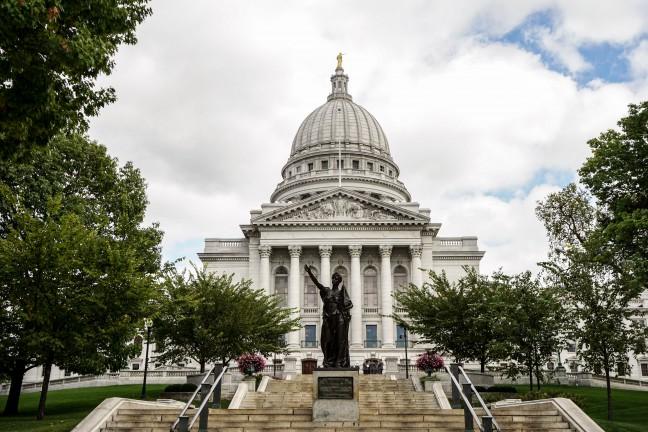It isn’t always easy to accept defeat. It’s even worse when the defeat occurs when you are expected to win. That’s how many Democrats feel as they try to figure what went wrong in 2016.
From 2008 to 2016, the Republicans underwent a civil war for the soul of their party. Now, for the next four years, it will be the Democrats.
The civil war began with the debate over who should lead the Democratic National Committee. The previous chairwoman, Debbie Wasserman Schultz, was forced to resign after it was revealed that her leadership was biased towards former Secretary of State Hillary Clinton over her opponent Sen. Bernie Sanders, D-Vt. She resigned, but she quickly received a job in Clinton’s campaign.
The current chairwoman is only temporary — Donna Brazile, another establishmentarian and a veteran of many presidential campaigns. Her tenure, however brief it is, has been tarnished as well. Email dumps from WikiLeaks have proven that she gave Clinton debate questions during the primaries before those debates took place. She has now lost her job as a CNN contributor.
As they consider who will fill the seat of the DNC Chair, Democrats are struggling to come to consensus over U.S. Rep. Keith Ellison, D-MN. The debate is over his views of Israel. Ellison firmly believes American foreign policy is forged by Israel and their political allies in the U.S., which, in his view, means we are ignoring all the other nations in the Middle East. His comments have led to criticism from some Jewish Democrats, such as prominent donor Haim Saban.
Ellison is also being attacked for his connections to black nationalist Louis Farrakhan and the Nation of Islam, which may have been criticized as “black supremacist.” I can’t help but find it hypocritical that people who have attacked Steve Bannon for his links to white nationalism have no problem backing someone that has ties to black nationalism.
The dividing lines over DNC leadership are being fought by the center-left establishment who were enthusiastic fans of Clinton and anti-establishment liberals that supported Sanders. This war will extend from local races, to statewide primaries in midterms, finally culminating in the 2020 presidential election.
The Democratic Party is in crisis. President Barack Obama may have achieved two terms during his presidency, but his ability to mobilize a coalition did not transcend to Clinton. The 2016 election proved how alienated the Democratic Party has become. It is dominant in the coasts but has lost middle America at a steady rate.
Aside from Obama, the Democratic Party’s record in 2016 and previous midterm elections is grim. Over 900 seats in state legislatures have been lost since 2010. When the Democrats won in a big wave in 2008, they had 29 governors total. Now they only have 16. The losses are similar in the Senate and the House of Representatives.
Damage like this to a political party is critical. Ultimately, having few local politicians means having fewer candidates for higher offices in states. A lack of statewide officials, like governors and senators, means fewer candidates for president. What remains are tiny collectives of liberal lawmakers in cities.
Wisconsin is the perfect example. Republican success can be attributed to high turnout among conservatives and connecting to voters in swing parts of the state. Gov. Scott Walker was a Milwaukee county executive before becoming governor, which meant that as a gubernatorial candidate he appealed to voters in an area that other Republicans wouldn’t be as successful in.
Walker won many suburban communities in Milwaukee county like Wauwatosa, West Allis and Greenfield because he understood the voters’ concerns of a heavy tax burden, reduced spending and the need for an efficient government. During the last two gubernatorial elections, Democrats have run candidates from the two liberal bubbles of Madison and Milwaukee rather than someone from another area of the state that has a deeper connection with voters who don’t usually back Democrats.
Midterm elections that will take place in 2018 are a good start because of the historical advantages when it comes to opposition parties, but it is never too early to plan for the next presidential race.
There are many factors that will determine 2020. Hillary Clinton was a deeply flawed candidate who didn’t connect to everyday Americans. It is best not to run an elitist. The personality and the message a candidate conveys matter, no matter what party faction of the Democratic Party the next nominee will come from.
If 2016 proved anything, it would be that you don’t need a conventional candidate. Billionaire Mark Cuban was a loud critic of Trump during the campaign trail. Maybe he could be the Democratic nominee in 2020. As crazy as it may sound, celebrities who’ve been active in politics like Oprah Winfrey or George Clooney might be better options than New York Gov. Andrew Cuomo or Sen. Cory Booker, D-NJ.
Whatever route the Democratic Party takes, they have to understand that they are endangered and desperately need to find a new way to connect with enough American voters to get back into the White House. The time to learn lessons and fight back is now.








